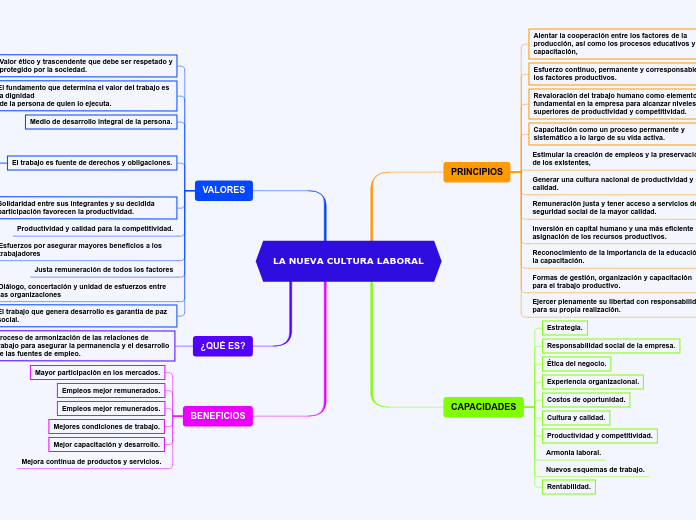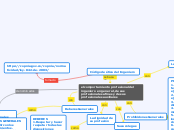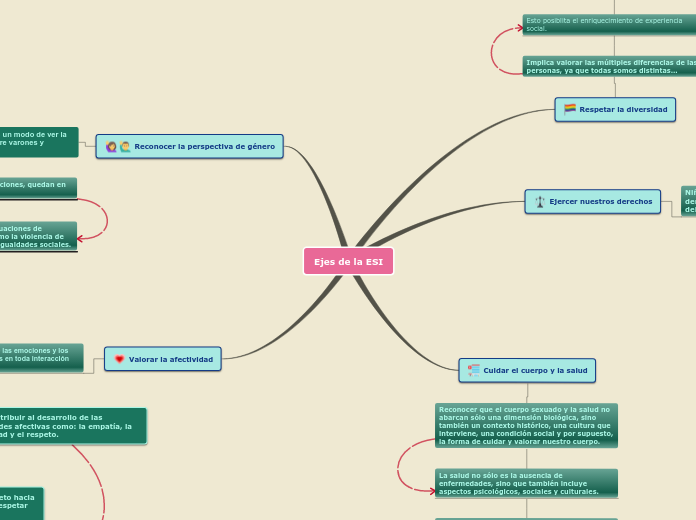LA NUEVA CULTURA LABORAL
The part of speech is a category to which a word is assigned according to its syntactic functions. In English the main parts of speech are noun, pronoun, adjective, determiner, verb, adverb, preposition, conjunction, and interjection.
BENEFICIOS
A preposition is one of the most exciting parts of grammar. A preposition is used to describe the location of something in relation to something else.
Mejora continua de productos y servicios.
Mejor capacitación y desarrollo.
A group of words used with the force of a single preposition is called phrase preposition.
Mejores condiciones de trabajo.
Participle preposition consists of words that end in “ing”.
When a preposition consists of more than one word, it is called double preposition.
Empleos mejor remunerados.
Compound preposition consists of two or more words.
Mayor participación en los mercados.
When a preposition consists of one word it is called single or simple preposition.
¿QUÉ ES?
An interjection is used to express emotion in a sentence.
Think of other interjections!
Proceso de armonización de las relaciones de trabajo para asegurar la permanencia y el desarrollo de las fuentes de empleo.
VALORES
An adverb is used to describe a verb, but it can also describe an adjective or another adverb.
Adverbs normally help paint a fuller picture by describing how something happens.
El trabajo que genera desarrollo es garantía de paz social.
Diálogo, concertación y unidad de esfuerzos entre las organizaciones
Justa remuneración de todos los factores
Esfuerzos por asegurar mayores beneficios a los trabajadores
Productividad y calidad para la competitividad.
Solidaridad entre sus integrantes y su decidida participación favorecen la productividad.
El trabajo es fuente de derechos y obligaciones.
The intensifiers strengthen adverbs adjectives and adverbs and down- toners make them weaker.
Las obligaciones deben ser cumplidas con espíritu de responsabilidad y autoexigencia.
Los derechos deben ser
respetados y promovidos.
Medio de desarrollo integral de la persona.
El fundamento que determina el valor del trabajo es la dignidad
de la persona de quien lo ejecuta.
Valor ético y trascendente que debe ser respetado y
protegido por la sociedad.
CAPACIDADES
A pronoun is a word that can be used in place of a noun, typically after the noun itself has already been stated.
Rentabilidad.
Unlike demonstrative pronouns, which point out specific items, indefinite pronouns are used for non-specific things. This is the largest group of pronouns. All, some, any, several, anyone, nobody, each, both, few, either, none, one, and no one are the most common.
Nuevos esquemas de trabajo.
Armonía laboral.
Productividad y competitividad.
Relative pronouns are used to add more information to a sentence. Which, that, who (including whom and whose), and where are all relative pronouns.
Cultura y calidad.
Interrogative pronouns are used in questions. Although they are classified as pronouns, it is not easy to see how they replace nouns. Who, which, what, where, and how are all interrogative pronouns.
Costos de oportunidad.
Reciprocal pronouns are used for actions or feelings that are reciprocated. The reciprocal pronouns are each other and one another.
Experiencia organizacional.
A reflexive pronoun ends with ...self or ...selves and refers to another noun or pronoun in the sentence (usually the subject of the sentence). The reflexive pronouns are myself, yourself, herself, himself, itself, ourselves, yourselves, and themselves.
Ética del negocio.
Demonstrative pronouns are used to demonstrate (or indicate). This, that, these, and those are all demonstrative pronouns.
Responsabilidad social de la empresa.
Possessive pronouns are used to show possession. The possessive pronouns are mine, yours, his, hers, ours, and theirs.
Estrategia.
The personal pronouns are I, you, he, she, it, we, they. More often than not (but certainly not always), they replace nouns representing people.
PRINCIPIOS
A noun is defined as a person, place, thing or idea. Proper nouns always begin with a capital letter. Common nouns, which are general words, such as 'cars,' are not capitalized.
Ejercer plenamente su libertad con responsabilidad, para su propia realización.
Formas de gestión, organización y capacitación para el trabajo productivo.
Reconocimiento de la importancia de la educación y la capacitación.
Inversión en capital humano y una más eficiente asignación de los recursos productivos.
Remuneración justa y tener acceso a servicios de seguridad social de la mayor calidad.
Generar una cultura nacional de productividad y calidad.
Estimular la creación de empleos y la preservación de los existentes,
Capacitación como un proceso permanente y sistemático a lo largo de su vida activa.
Compound nouns are words where two nouns have been stuck together to make a new noun. Compound nouns should be written as one word, without a hyphen.
Revaloración del trabajo humano como elemento fundamental en la empresa para alcanzar niveles superiores de productividad y competitividad.
A noun which refers to a group of things/people.
Esfuerzo continuo, permanente y corresponsable de los factores productivos.
Countable nouns are nouns that can be counted, even if the number might be extraordinarily high.
Uncountable nouns are nouns that come in a state or quantity which is impossible to count; liquids are uncountable, as are things which act
like liquids.
Alentar la cooperación entre los factores de la producción, así como los procesos educativos y de capacitación,
Proper nouns are the names of specific people or places. They should always begin with a capital letter.









